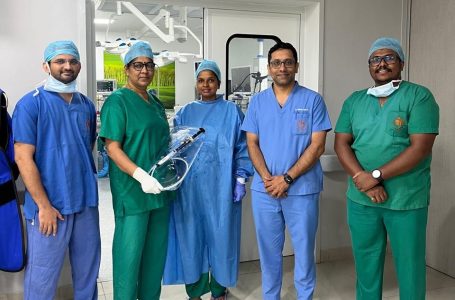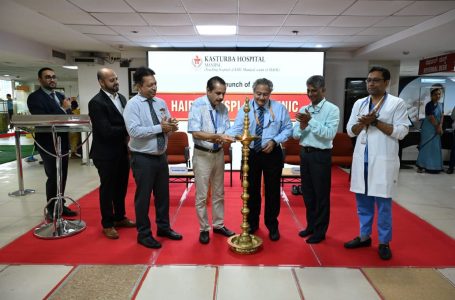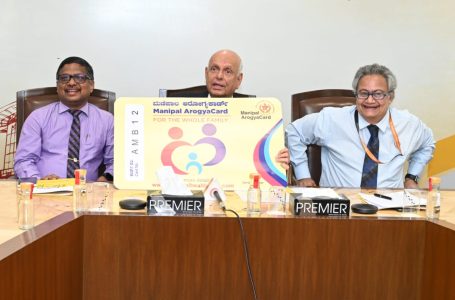Cardiologists from KMC perform Heart Valve Replacement without open heart surgery
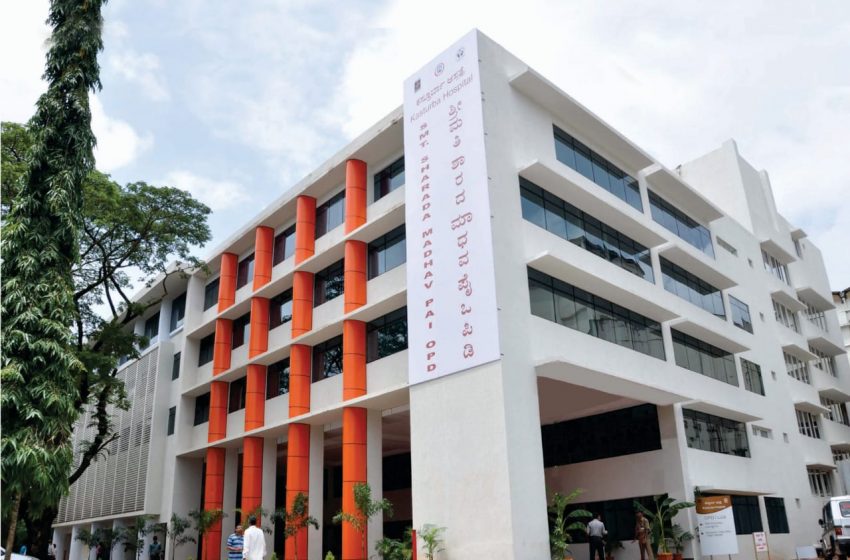
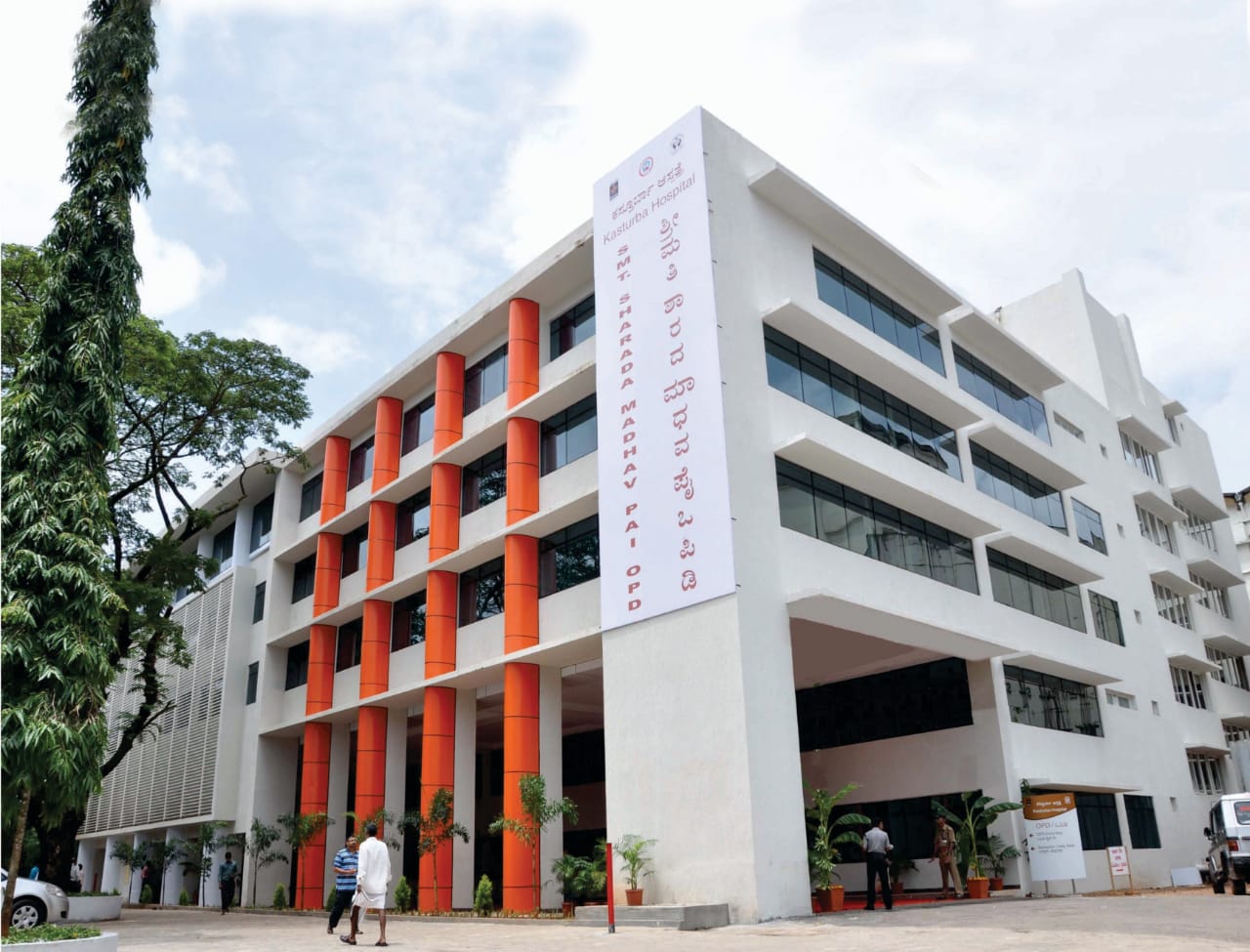
Manipal, Nov 23, 2022: A team of doctors from Kasturba Medical College and Hospital Manipal successfully performed aortic valve replacement without an open-heart surgery.
The team comprised Dr Tom Devasia, Professor and Unit Head, Dr Monika J, Assistant Professor, Department of Cardiology and Dr Guruprasad Rai, Associate Professor, Department of Cardiac Thoracic Surgery.
All the patients were discharged in a stable condition within few days of the Transcatheter Aortic Valve Implantation (TAVI). The transcatheter aortic valve replacement (TAVR) is done by few cardiologists in the country.
“We, ‘The Team TAVI’ at Kasturba Medical College, and Hospital Manipal have successfully done many so far,” a press statement from Kasturba Medical College and Hospital stated.
Seventy-Six years old male patient was suffering from breathlessness on exertion for one month duration. This was progressively increasing. His 2D echo showed severe calcific aortic stenosis. The coronary angiogram was normal.
“We offered the transcatheter aortic valve implantation to this patient as the patient was high risk for open heart surgery. This was the first ever TAVI done at Kasturba Medical College, and Hospital Manipal done in the pre Covid era. The patient went home happy and stable within a few days.
Seventy-two years old male patient presented with breathlessness and giddiness on exertion. On cardiac evaluation he was found to have severe calcific aortic stenosis. He also had chronic obstructive pulmonary disease, making him unfit for the open-heart surgery. Transcatheter aortic valve implantation was done for him and the patient was discharged within few days of TAVR in a stable condition.
Seventy-four years old male suffered severe heart failure and long standing cough. The patient was initially admitted with internal medicine for acute exacerbation of chronic obstructive lung disease with Dr. Ram Bhat (Professor and unit head) and was stabilized. On evaluation he was found to have severe calcific aortic stenosis with severe left ventricular (LV) dysfunction with LV ejection fraction – 10% and severe pulmonary hypertension. Cardiology team was consulted and the heart team decided to offer transcatheter aortic valve implantation in view of very high risk of mortality with open heart surgery.
“In India, very few cardiologists have performed transcatheter aortic valve implantation in patients with severe left ventricular dysfunction of LVEF less than 30%. Our patient had LVEF of 10%. The team TAVI, finally after a lot of discussion, decided for transcatheter aortic valve implantation. The transcatheter aortic valve implantation was done and the patient’s condition improved dramatically. He started to smile and the family as well as doctors noticed the tremendous change in the patient’s condition immediately within 24 hours. The team of cardiologists Dr Tom Devasia, Dr. Monika J and a Cardiovascular surgeon Dr. Guruprasad Rai and the entire cardiology team of Cath lab, cardiac ICU, Department of cardiovascular Technology, OPD played important role in the entire journey of the patient to the new life altogether. As it is rightly said it’s not important how many days you have in life, but it’s important how much life do we add to every day,” the press statement added.
Aortic stenosis is narrowing of the important left sided heart valve which plays crucial role in the blood supply to entire body. Sometimes it may get damaged with age. Usually such damaged valves are replaced by open heart surgery.
“When the open heart surgery becomes high risk in patients with severe aortic stenosis, such patients are good candidates for valve replacement without surgery,” Dr. Tom Devasia, Professor and unit head Cardiology, said.
If the aortic valve is severely narrowed and stenosed, the patient can develop symptoms of chest pain, breathlessness on exertion, syncope on exertion or even sudden cardiac death.
Dr. Tom Devasia further said that once the patient starts getting symptoms of heart failure, the life expectancy for patients with severe aortic stenosis in less than 1 year. Also if the patient has left ventricular dysfunction, the life expectancy is less than 3 to 6 months. Most of these patients are fragile and high risk for open heart surgery. Therefore, transcatheter aortic valve implantation becomes the best option, giving them a new life.
Dr. Monika J, Assistant Professor Cardiology said that transcatheter aortic valve implantation is an extremely rewarding procedure as we can see the immediate results with very less periprocedural complications and shorter hospital stay as compared to open heart surgery.
Dr. Guruprasad Rai , Associate professor Cardiovascular Surgery said that Transcatheter Aortic Valve replacement is done in much lesser time as compared to the open heart surgery and the recovery time is also much faster.
The professor and Head of the department of Cardiology Dr. Padmakumar R stated that TAVI is preferred by more and more Cardiologists as an alternative for severe narrowing of the aortic valve in elderly people especially if they are not good candidates for surgery.
Dr Avinash Shetty Medical Superintendent said the entire team TAVI including Cardiologist, Cardiovascular surgeon, Anaesthesia, Cathlab and ICU team played a crucial role in each critically ill patient who underwent TAVI and could successfully give new life to these patients.
Dr Anand Venugopal, COO, Teaching Hospital, MAHE, Manipal congratulated the team


